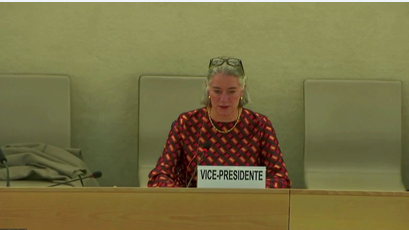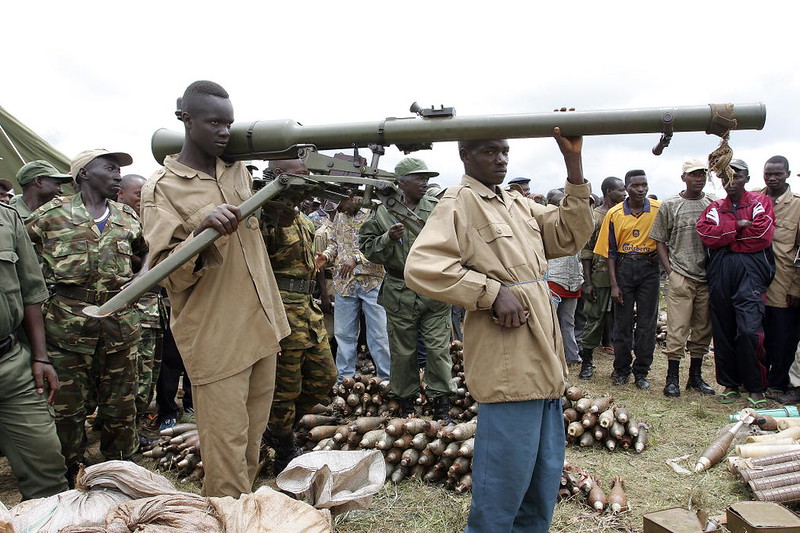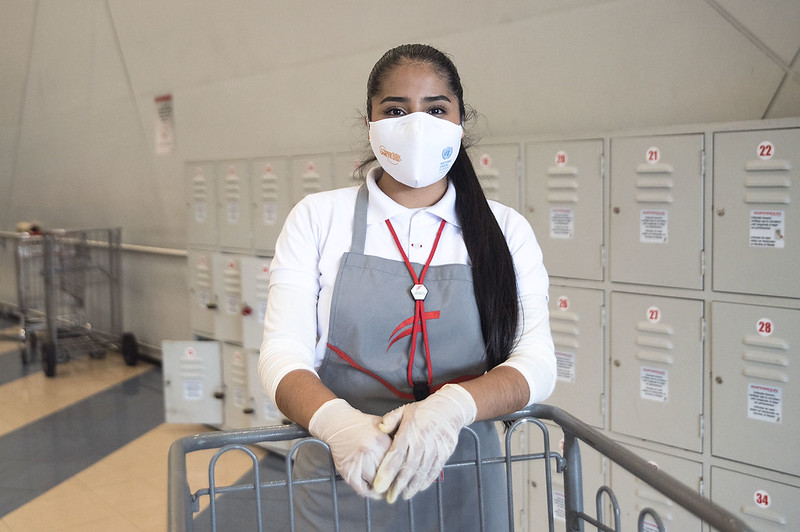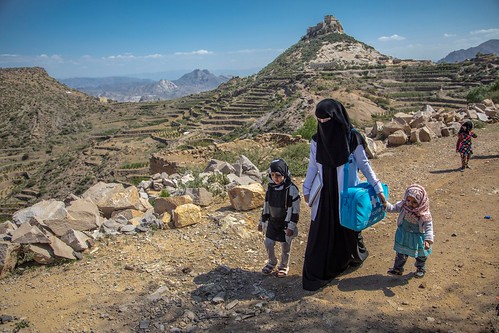The 48th Session of the Human Rights Council
(13 September- 8 October)
ITEM 4 – Human Rights Situations that require the Council’s attention
Interactive Dialogue with the UN Commission of Inquiry on the Syrian Arab Republic
23 September
By: Sarah Tayara/GICJ
Executive Summary

March 2011 marked the beginning of the Syrian people’s call for justice and freedom. Yet, as the 11th year of the brutal conflict looms, with the humanitarian situation continuing to spiral into a deeper state of violent repression from the Syrian government, the human rights abuses of the people of Syria remain devastating.
Since the beginning of the conflict, the Commission of Inquiry on Syria has produced 24 mandated reports on the human rights situation in Syria, and orally briefing the Human Rights Council three times per year. These reports and briefings have outlined human rights violations committed throughout the country by numerous parties and are based on in-depth interviews with witnesses and victims of the Syrian conflict. While the Commission’s investigations rely primarily on first-hand accounts to corroborate incidents, the Syrian Government has yet to allow the Commission to undertake investigations inside the country, curtailing any prospect of justice for the Syrian people through accountability of the perpetrators of heinous war crimes.
As we enter the 11th year of the conflict, the Syrian government, amongst other parties, persists in the abuse of its people’s civil, economic, political, and social rights, pushing the people of Syria deeper and deeper into a pit of destitution.
Ms. Karen Konig AbuZayd: Member of the Independent International Commission
Several states and non-governmental organisations came together on Thursday, 23rd September 2021, in the 48th Regular Session of the Human Rights Council for the Interactive Dialogue with the Independent International Commission of Inquiry on Syria. Ms. Karen AbuZayd presented the findings of the Commission, making it very clear that despite ten years have passed since the establishment of the Commission, war crimes and crimes against humanity continue to haunt the Syrian people.
Ms. AbuZayd highlighted the profound problem of arbitrary arrests and detention, torture, and execution of detainees by the Syrian government and other parties involved in the conflict such as ISIS, the Syrian Democratic Forces, Hay’at Tahrir Al-Sham, and the Syrian National Army. After more than a decade of widely known abuse, more should be done to identify, locate and release the missing and safeguard their rights. Despite recognizing the extraordinary courage of Syrian activists and victims who told their stories, Ms. AbuZayd highlighted that victims and their families are often forced to suffer in silence due to the fear of being arrested, tortured, and killed for speaking up. In addition to the inhumane conditions of Syria’s notorious detention centres, vulnerable detainees in fragile health conditions now face the threat of a COVID-19 outbreak which they may not survive.
Ms. AbuZayd also highlighted the desperate state of or refugees and more than half of the Syrian population internally displaced. Millions of men, women, and children have been caught up in the crossfire of political games. In highlighting this point, Ms. AbuZayd reiterated the dire effect of the unilateral sanctions and coercive measures passed onto the undeserving population. Notably, she noted that this is no time to think that Syria is fit for its refugees to return. The war on Syrian civilians continues.
Ms. AbuZayd also lamented the dire situation of thousands of women and children in the Al-Hawl camps. The fate of approximately 40,000 children remains murky, and they are forced to suffer the consequences of crimes they did not commit.
Moreover, Ms. AbuZayd highlighted the disappointing disintegration of the March 2020 ceasefire agreement between Russia and Turkey, with aerial bombardments and shelling haunting the country. Medical facilities, such as the de-conflicted hospital in Atarib, markets, and residential areas have been indiscriminately targeted by aerial bombardments, causing numerous civilian casualties. The deliberate and systematic targeting of health care workers and facilities not only amounts to war crimes but also exacerbates the country’s already limited healthcare capabilities amidst the worst pandemic the world has seen in a century. Similarly, she highlighted the Commission’s deep concern for the recent hostilities in Dara’a Quineitra and Rif Damascus, all of which have experienced sieges and starvation tactics from the Syrian government, which have not been employed since 2018.
As Ms. AbuZayd drew upon the fact that this is the last time she will be addressing the Human Rights Council in her capacity as a member of the COI on Syria, she urged the body to amplify the voices of ordinary Syrians. She reiterated the need to end the war, locate the missing, and reunite them with their family. Most importantly, she called upon the body to address the needs and aspirations of Syrians and to attempt the one thing not yet tried for ten years: to put Syrians first.
Syria’s Defence of a ‘Politicised Agenda’
Syria’s response to the accusations of violence did not differ from the previous sessions. Taking a defensive stance, Hussam Edin Alaa, who spoke on behalf of the country, claimed that the Commission’s report was riddled with misinformation, uncredible evidence, and untrue stereotypes of the Syrian Arab Republic. Instead, he reiterated that this meeting is the proof that the Human Rights Council mechanisms are used to target States such as Syria and act in favour of others such as America, Turkey and Israel who terrorize Syrians, support terrorist militias and exploit natural resources. Once again, the Syrian regime demonstrated its refusal to take responsibility for its people’s deprivation, torture and hardships.
Mr. Alaa remained adamant that the report was heavily politicized, served an ulterior agenda, and did not meet the minimum standards of professionalism. Instead, he insisted that the Commission avoided investigating or questioning Turkey’s exploitation of Syria’s water supplies, a strategy amounting to collective punishment and crime against humanity, as well as Turkey’s invasion of Afrin and an American air raid against a school because the Commission’s sponsors refuse it.
In its determination to refuse any accountability or responsibility for the fate of its citizens, Syria pointed to the unilateral coercive messages imposed on the country by the EU and the United States. Mr. Alaa insisted that such measures targeted the Syrian government and intended to cause suffering in Syria, deprive people of their livelihoods, and impede the return of refugees.
Moreover, Syria claimed that it has been fighting off terrorist groups, the Israeli-American alliance and Turkish operations over the last ten years, all of which have protected these terrorist organisations. Despite the compelling evidence in the report, Syria rejected the findings and did not show any intent to take responsibility. Rather, Mr. Alaa concluded by commenting on the Commission’s attempt to discredit the Syrian government and its right to liberate Syria and the attempt of the Council to smear the name of the Syrian regime by involving itself in Syria’s internal affairs.
Interactive Dialogue: The Condemnation of Syrian Government
Many States took the floor to express their position on the report and posing questions to Mr. Paulo Sergio Pinheiro (Chairperson of the COI), Ms. AbuZayed, and Mr. Hanny Megally (member of the COI). The consensus appeared to be a condemnation of the Syrian government and pro-government forces for their grave violations against innocent civilians over the last 11 years. Several countries, however, aligned themselves with Syria’s statement, stressing the importance of territorial sovereignty and highlighting their dissatisfaction with the Commission’s ‘politicised agenda.’
Finland on behalf of the Nordic Countries, highlighted its unwavering support for the COI and its deep concern about the widespread and systematic violations against the country’s citizens. Finland also deplored gender-based violence, arbitrary detention, and indiscriminate attacks, urging all the parties to fulfil their international human rights obligations. Finland also stated its full support for UN Resolution 2254, which was agreed upon in 2015 to reach a peaceful ceasefire.
The European Union condemned the violations of international humanitarian law by all parties involved in the conflict, mainly focusing on the Syrian regime and its allies. The EU stressed the need to depoliticise the delivery of humanitarian aid and permanently cease airstrikes in the country. IT also reitereted its full support for the work of the Organisation for the Prohibition of Chemical Weapons and the International and the Impartial and Independent Mechanism for Syria (IIIM). The European Union finished by urging all parties in the Syrian conflict to call a ceasefire, establish safe conditions for refugees’ return, and reach a peaceful political transition under UN Resolution 2254.
Some countries, including the United Kingdom, France, Greece, Belgium, Malta, Romania, and Cyprus, aligned themselves with the statement made by the EU. The Netherlands also asked the Commission how families can establish an independent and international mechanism for locating missing people in Syria.
Switzerland commented on the deteriorating human rights situation in Syria, drawing attention to the shelling and aerial bombardment in Northwest Syria, and the Syrian government’s siege-like and starvation tactics against the people of Dara’a. Greece and Armenia called for accountability for all actors violating International Humanitarian Law and International Human Rights. While condemning the Syrian government, Greece denounced Turkey’s ‘demographic engineering’ and recruitment of child soldiers. Armenia reiterated this concern recalling the 1986 UN Commission on Human Rights’ recognition of the use of child mercenaries as a crime against humanity. Both Greece and Armenia deplored the use of mercenaries, calling upon the Commission to establish the facts of mercenary recruitment in Syria and elaborate recommendations on how to approach this issue.
Qatar, Kuwait, and Bahrain’s position on the human rights situation in Syria was overwhelmingly similar. Kuwait condemned the ongoing military situation described above but also drew attention to the continuous use of prohibited weapons. Highlighting the Syrian regime’s lack of good faith, they called upon the government to establish life-saving corridors within the country, urge all parties to abide by international instruments and call for a ceasefire for the Syrian people.
UN Women depicted a detailed analysis of the gender-based violence faced by women, girls and sexual minorities daily. It highlighted the targeting of female journalists and 40 female media workers and systemic sexual violence, torture, arbitrary detention, and imprisonment as a tool to instil fear in women and prevent them from becoming a fabric of the Syrian society. UN Women also condemned the consistent harassment women face for advocating for gender equality and the protection of women’s rights in the Syrian society. They called upon the immediate cessation of torture as a tactic against women and girls and for a solution to end the systematic violence against them.
Turkey condemned Assad, the primary perpetrator of violations against the legitimate aspirations of its people. Turkey continued by reiterating its support for COI’s mandate, stressing that the Turkish priority in Syria has been protecting the Syrian civilian population. The country also expressed its concern at the report’s failure to reflect the facts and figures presented by Turkey on the Syrian Democratic Forces and the Kurdistan Workers Party’s terrorist activities. To conclude, Turkey dismissed Greece and Armenia’s accusation of Turkish recruitment of mercenaries within Syria, stating that they were not worth a reply.
Politicisation, Agendas, and Territorial Sovereignty
Iran and Russia adopted a different stance. Iran blamed foreign terrorism and foreign actions for the suffering of millions of Syrian civilians, pointing out the US’ culpability for violating the UN Charter and denying the Syrian government of protecting its civilians. Throughout the entire statement, Iran victimised the Syrian government, denying even partial blame for the plummeting state of the country and its citizens.
Russia accused the mandate of the Commission to be advancing its day-to-day political goals, accusing the Commission of going beyond its mandate by drawing upon the use of chemical weapons and foreign occupation in Syria. Specifically, Russia deplored the COI’s ignorance of the Syrian government’s ‘counterterrorist’ activities and the COI’s negligence of the terrorist activities funded abroad. Russia concluded by saying that the COI aimed was to manipulate the political discourse surrounding the Syrian conflict and antagonise the international community by splitting it into irreconcilable enemies.
Venezuela, China, and the Democratic People’s Republic of Korea (DPRK) reiterated Iran and Russia’s sentiments. Venezuela began by deploring the loss of life, swiftly moving on to condemning the politicisation of the work of the Commission of Inquiry (COI), precisely its dark agenda and media campaign against the Syrian government. It criticised the Commission’s shocking expenditure of millions of dollars which it believes has no ‘tangible benefits,’ focusing on the necessity of protecting Syria’s territorial sovereignty and the integrity of its government.
Similarly, China and the DPRK stressed that a political solution was the only way out of this complex situation Syria finds itself. They also commented on the importance of maintaining Syria’s sovereignty, independence and territorial integrity, and reiterated their opposition to the politicisation of the COI. They highlighted the need to stand against external forces trying to use the veil of human rights to intervene in internal Syrian affairs.
Civil Society Organizations’ responces
The overwhelming stance of the majority of NGOs was clear and homogenous. The culpability of the Syrian authorities in the persisting human rights violations of the Syrian people is undeniable. Civil society organizations called for the imposition of international sanctions on armed groups and entitled proven to be involved in human rights violations. An NGO called for establishing an independent and impartial mechanism to locate the missing who have been forgotten. It urged the UN member states to do so as a means of reiterating that the international community did not forget those detained by ISIS. Another NGO focused on water security, particularly in the Northeast and deplored the recruitment of Syrian mercenaries, including child soldiers.
Final Remarks
Hanny Megally spoke on behalf of himself and Ms. AbuZayd in response to concerns expressed by States and NGOs. Addressing the issue of access to humanitarian aid and human rights in Syria, Mr. Megally noted that Damascus consistently denied any access in the country for human rights monitors. Reiterating his shock at only one cross-border access being opened by the Syrian regime, Mr. Megally stressed that this should not be a hurdle faced the Commission faces, particularly when so many vulnerable people are dependent on such aid.
Mr. Megally also addressed the concerns on arbitrary detention and enforced disappearances. Despite a lot of work done by groups on the ground to locate and reunite missing persons with their families, he stressed that it was high time that all relevant actors working on this issue come together to succeed. Notably, he focused on the need for such a mechanism to be seen as impaction, and supported by all actors in the conflict, not just state action.
He also responded to Greece and Armenia’s question of child mercenaries by highlighting that the recruitment of child soldiers is one of the six grave violations of armed conflict. This is something that the Commission has consistently repeated in all of their interactions.
Mr. Pinheiro concluded by reiterating Karen’s hope of a Syria where civilians are respected and not diminished. He noted how these hopes are what have fuelled and sustained Karen, Hanny, and him to keep documenting the hardship of the Syrian people.
Position of Geneva International Centre for Justice
Geneva International Centre for Justice (GICJ) condemn the countless human rights violations committed by all parties in the Syrian conflict. GICJ recognises the vulnerability of women and children who are systematically targeted due to their defencelessness. Sexual attacks, gender based-violence, targeted torture, and arbitrary detentions represent only a fraction of the hardships inflicted on innocent women and children. In this regard, the international community has the responsibility to be the voice for the Syrian women and children who have been silenced by the regime. States and the United Nations need to make a real, collective effort for the Syrian society.
Moreover, we recognise the undeniable culpability of the Syrian regime, which has been violating the rights and integrity of the Syrian people for over a decade. This has been exacerbated by the country’s absolute failure to uphold any systems of accountability which ensure justice for victims of malicious crimes. We urge the United Nations to do more to hold perpetrators of human rights violations accountable. Without a legitimate accountability system, the government will continue to capitalise on its power with the knowledge that there will be no consequences for its maliciousness.
Finally, GICJ calls all parties involved for a political ceasefire under UN resolution 2254. However, this is not sufficient. The years of hardship and violations, and the return of siege-like and starvation tactics as recently seen in Dar’aa, will hardly be rectified by a political solution alone. It is necessary for the UN and the international community to continue pressuring the Syrian authorities until it makes a real, binding commitment to release all political prisoners and illegally detained civilians and to hold all responsible accountable, especially those in the leading positions, for their corruption and violations of citizens’ rights. Removing the veil of invincibility currently possessed by Syrian officials is imperative to ensure that the rights of citizens are priorities above all else.
Through these commitments, GICJ hopes that innocent Syrians will begin to have their rights reinstated for them in the way they deserve.
Justice, Human rights, Geneva, geneva4justice, GICJ, Geneva International Centre For Justice
Previous Reports from the 48th Session of the UN Human Rights Council
 |
 |
 |
 |
ID with Commission of Inquiry on Burundi |
Annual Discussion on Digital Gender Gap during Covid-19 |
ID on the Democratic Republic of the Congo with experts on Kasai |
ID with the Group of Experts on Yemen |




